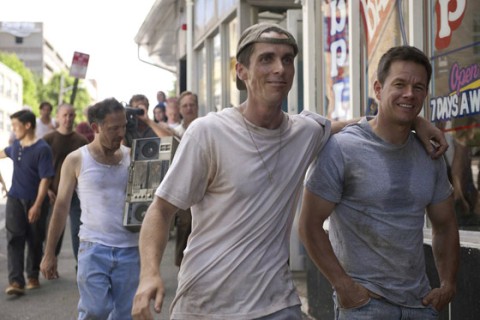The Fighter

Boxing movies are hardly ever about boxing. Instead, they use boxing as a vehicle to explore larger issues such as raw ambition (Champion), fading hope (The Set-Up), racism (The Great White Hope), institutional corruption (The Harder They Fall), fading pride (Requiem for a Heavyweight), personal redemption (Rocky) and, in perhaps the greatest of all boxing films, Raging Bull, the inner workings of a damaged psyche. For decades, boxing in the movies has represented the chance for a young tough with limited opportunities to make something out of himself. This is articulated by Marlon Brando in On the Waterfront, portraying an ex-boxer who tells his crooked older brother that he should have watched out for him, that "I coulda been a contender, I coulda had class."
David O. Russell's The Fighter is also about class, but in this case it's the social kind. The film is based on the true story of "Irish" Micky Ward (Mark Wahlberg), a welterweight out of hardscrabble Lowell, Massachusetts, who fought in the 1980s and '90s. This boxing movie's real subject is the pull of family, Micky's greatest obstacle to achieving "class."
The dilemma is skillfully laid out in the first act. Micky lives in the shadow of his older brother, Dicky (Christian Bale), a once-promising fighter who has gone to seed and picked up a serious crack habit along the way. Dicky is a character straight out of Eugene O'Neill, a pipe dreamer who still talks about his glory days (he once knocked down Sugar Ray Leonard) and continues to harbor fantasies about making a comeback and living up to his nickname, the "Pride of Lowell." His delusion is fed by the rest of his whacked-out family, especially his mother, Alice (Melissa Leo), who clearly favors the goofy Dicky over the quiet and more serious Micky.


